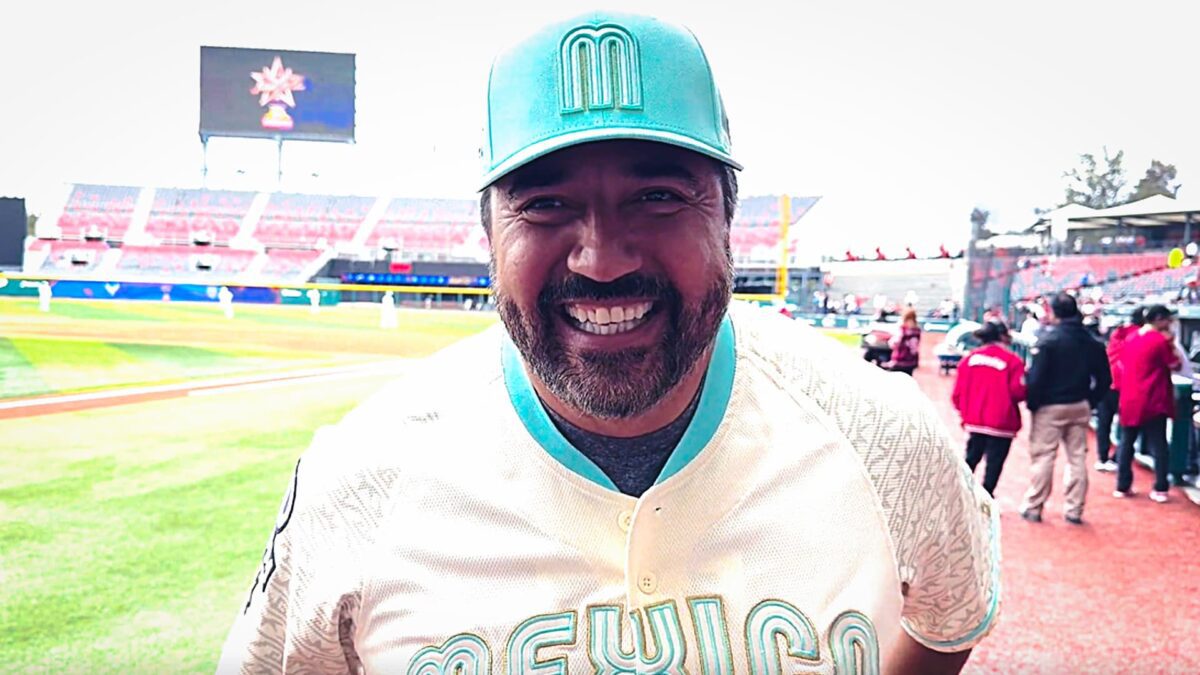



MEXICO CITY — Two-time Major League All-Star Vinnie Castilla, a member of the Salón de la Fama del Beisbol Mexicano, spoke with World Baseball Network at Estadio Alfredo Harp Helú during the Liga Mexicana de Beisbol’s 100th anniversary celebration.
Castilla discussed the honor of representing Mexico, the growth of baseball around the world, and the lasting legacy of players like Ichiro Suzuki, Dave Parker, and Mexican icons Fernando Valenzuela, Mel Almada, and Héctor Espino.
Matthew Tallarini: Two-time All-Star Vinnie Castilla, also a member of the Salón de la Fama del Beisbol Mexicano—what does it mean to play here in Mexico City during the 100th anniversary of the LMB, and to see the sport growing more each year?
Vinnie Castilla: Oh, it’s great. It’s unbelievable—the energy the fans gave us yesterday was incredible. Unfortunately, the rain didn’t let us finish the game, but we’re here again today. It’s always beautiful to see the fans so engaged with the game, especially when Mexico plays teams like Australia, the Dominican Republic, or Venezuela. Seeing all the stars from those teams is amazing. But representing Mexico? That’s always a great responsibility for me. I do it with all my heart, with love for my country. And the energy the fans give us—it’s just unbelievable.
Tallarini: What did it mean for Mexico to host the Caribbean Series in Mexicali earlier this year, and now the LMB’s 100th All-Star Game? Two major milestones in the same year. And with the World Baseball Classic coming next—what’s ahead?
Castilla: It’s always special to bring those kinds of events to Mexico. The Caribbean Series was huge. And even before the World Baseball Classic, we played right here in Mexico City—not at this ballpark, since it hadn’t been built yet, but at Foro Sol. Hosting those events is important because we have so many passionate baseball fans here. After the success we had in the last World Baseball Classic, we’ve gained even more fans. This is a soccer country—but that tournament changed a lot. Now more people are following baseball.
Tallarini: What does it mean to you to see the game growing globally, especially with Ichiro Suzuki becoming the first Japanese player inducted into the Hall of Fame in Cooperstown—someone you played against?
Castilla: That means a lot. MLB is doing a great job of bringing events to countries where baseball isn’t as popular, to help the game grow. Seeing Ichiro—who I played against—go into the Hall of Fame, that’s beautiful. Japan really loves baseball, and so does Mexico. It’s wonderful to see this beautiful game being played not just in the U.S. or Latin America, but in Europe and other parts of the world. It’s expanding in a great way.
Tallarini: What about someone like Dave Parker—“Cobra”—who paved the way for American players to play in Caribbean winter leagues? Did you ever get to play against him?
Castilla: I never played against “Cobra,” but I knew who he was and what he meant to the game. He brought a lot to the table—his legacy is strong. I was sad to hear he passed away recently. It’s unfortunate he didn’t make the Hall of Fame before he died, but people like that—who did so much for the game—are always appreciated.
Tallarini: One last question. What do legends like Fernando Valenzuela, Mel Almada, and Héctor Espino mean to Mexican baseball?
Castilla: Those are the big three in Mexican baseball history. Fernando was the one who paved the way for all of us to dream about playing in the big leagues. He inspired me and so many others. Mel Almada was the first Mexican-born player to reach the big leagues. And Héctor Espino—they call him the “Babe Ruth of Mexico.” He holds so many records here. If he had chosen to play in the U.S., I believe he would have had a very successful MLB career. He was unbelievable.
Tallarini: Vinnie, thank you so much for your time. Best of luck tonight.